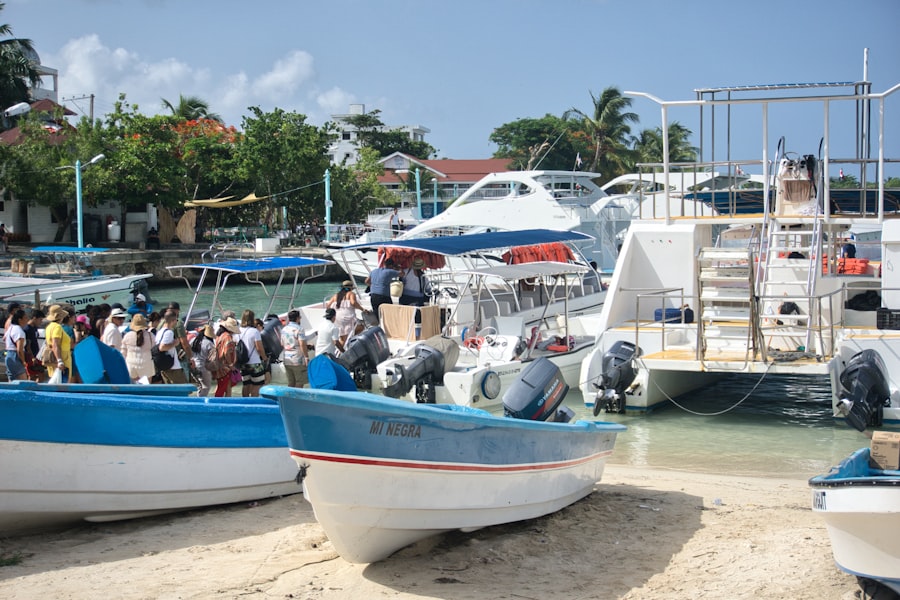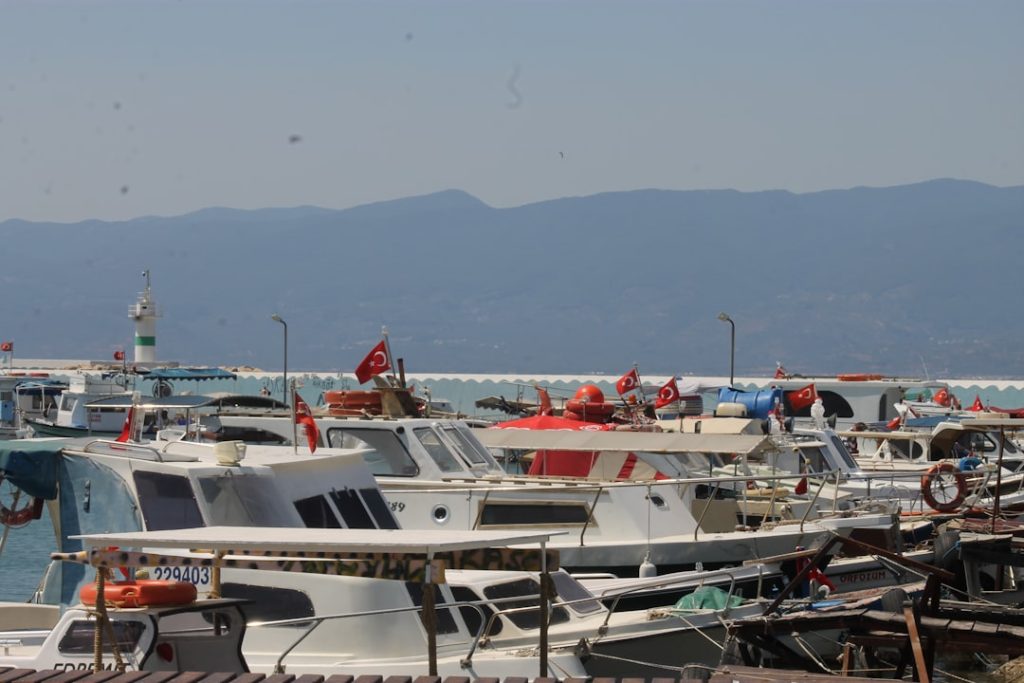The yachting market is a multifaceted industry that encompasses a wide range of activities, from the design and manufacturing of yachts to their sale, charter, and maintenance. This market has seen significant growth over the past few decades, driven by an increasing number of affluent individuals seeking leisure and adventure on the water. The global yachting market is estimated to be worth billions of dollars, with a substantial portion attributed to luxury yacht sales and charters.
The rise of the millennial and Gen Z demographics, who are increasingly interested in experiential travel, has also contributed to the expansion of this market. In addition to the traditional luxury yacht segment, there is a growing interest in eco-friendly and sustainable yachting options. Manufacturers are now focusing on building yachts that utilize alternative energy sources, such as solar panels and hybrid engines, to reduce their environmental impact.
This shift reflects a broader trend in consumer preferences towards sustainability, which is reshaping various industries, including yachting. Furthermore, the emergence of technology in yacht design and operation, such as smart navigation systems and automated controls, is revolutionizing how yachts are built and operated, making them more accessible to a wider audience.
Key Takeaways
- The yachting market requires understanding of trends, buyer preferences, and market segments.
- Selecting the right yacht depends on purpose, size, budget, and features.
- Compliance with international and local yachting regulations is essential for safe operation.
- Investing in yachting involves assessing market value, maintenance costs, and potential returns.
- Safety protocols and regular maintenance are critical for a secure and enjoyable yachting experience.
Choosing the Right Yacht
Selecting the right yacht is a critical decision that requires careful consideration of various factors, including size, purpose, and budget. Potential yacht owners must first determine how they intend to use the yacht—whether for personal leisure, entertaining guests, or chartering. For instance, a family looking for weekend getaways may opt for a smaller motor yacht that offers comfort and ease of handling, while a business owner seeking to host corporate events might prefer a larger luxury yacht equipped with state-of-the-art amenities.
Budget is another crucial aspect when choosing a yacht. The price range for yachts can vary dramatically, from modest sailboats costing tens of thousands of dollars to opulent superyachts that can exceed hundreds of millions. Prospective buyers should also factor in ongoing costs such as maintenance, insurance, docking fees, and crew salaries if applicable.
Additionally, it is essential to consider the yacht’s resale value; some brands and models hold their value better than others due to their reputation for quality and performance. Engaging with a knowledgeable yacht broker can provide valuable insights into the market and help buyers make informed decisions.
Navigating Yachting Regulations

The yachting industry is governed by a complex web of regulations that vary by country and region. These regulations cover various aspects of yachting, including safety standards, environmental protection, and maritime laws. For instance, many countries require yachts to comply with specific safety equipment regulations, such as life jackets, fire extinguishers, and emergency beacons.
Understanding these requirements is essential for ensuring compliance and avoiding potential fines or legal issues. In addition to safety regulations, environmental laws are becoming increasingly stringent as governments seek to protect marine ecosystems. Yachts must adhere to regulations regarding waste disposal, fuel emissions, and wildlife protection.
For example, many popular cruising areas have established no-discharge zones where sewage cannot be released into the water. Owners must also be aware of local customs regulations when entering foreign waters, which may include restrictions on the importation of certain goods or requirements for customs declarations. Staying informed about these regulations is vital for smooth sailing and responsible yachting practices.
Investing in Yachting
| Metric | Description | Typical Range | Notes |
|---|---|---|---|
| Initial Investment | Cost to purchase a yacht | 100,000 – 10,000,000+ | Varies by size, brand, and luxury level |
| Annual Maintenance Costs | Upkeep, repairs, and servicing | 10% – 20% of initial investment | Includes docking, cleaning, and engine maintenance |
| Depreciation Rate | Yearly loss in yacht value | 5% – 15% | Depends on yacht type and market demand |
| Charter Income Potential | Revenue from renting out the yacht | 50,000 – 1,000,000+ | Highly variable based on location and yacht size |
| Insurance Costs | Annual insurance premiums | 1% – 5% of yacht value | Depends on coverage and yacht usage |
| Resale Value | Estimated value after 5 years | 40% – 70% of initial investment | Influenced by condition and market trends |
| Operating Expenses | Fuel, crew salaries, and other running costs | Variable, often 10% – 15% of initial investment annually | Depends on usage frequency and yacht size |
Investing in yachting can be a lucrative venture for those who approach it with careful planning and research. The yacht market has historically shown resilience even during economic downturns, making it an attractive option for high-net-worth individuals looking to diversify their investment portfolios. One common investment strategy involves purchasing a yacht with the intention of chartering it out when not in personal use.
This approach can generate significant income while offsetting ownership costs. However, potential investors should conduct thorough due diligence before making any purchases. This includes analyzing market trends, understanding the depreciation rates of different yacht types, and evaluating potential charter income based on location and demand.
Additionally, engaging with financial advisors who specialize in marine investments can provide valuable insights into the financial implications of yacht ownership. Investors should also consider the long-term maintenance costs associated with yacht ownership, as these can significantly impact overall profitability.
Yachting Safety and Maintenance
Safety is paramount in yachting, as the open water presents unique challenges that require careful preparation and vigilance. Yacht owners must ensure that their vessels are equipped with all necessary safety gear and that they are familiar with emergency procedures. Regular safety drills should be conducted with all crew members to ensure everyone knows their roles in case of an emergency.
Furthermore, it is essential to stay updated on weather conditions and navigational hazards before setting sail. Maintenance is another critical aspect of yachting that cannot be overlooked. Regular inspections and servicing of the yacht’s systems—such as engines, electrical systems, and hull integrity—are vital for ensuring safe operation.
Many yacht owners choose to hire professional maintenance services to handle these tasks, especially for larger vessels that require specialized knowledge. Additionally, seasonal maintenance routines should be established to prepare the yacht for different weather conditions and usage patterns throughout the year.
Yachting Lifestyle and Events

The yachting lifestyle is often associated with luxury, adventure, and exclusivity. Owners frequently participate in various social events that celebrate this lifestyle, such as yacht shows, regattas, and exclusive parties hosted on board luxurious vessels. Events like the Monaco Yacht Show or the Fort Lauderdale International Boat Show attract thousands of attendees each year, showcasing the latest innovations in yacht design and technology while providing networking opportunities for industry professionals.
Moreover, yachting offers unique experiences that go beyond mere ownership; it allows individuals to explore stunning coastlines, secluded islands, and vibrant marine ecosystems. Many yacht owners take advantage of their vessels to travel to prestigious destinations like the Caribbean or the Mediterranean during peak seasons. The camaraderie among yacht owners often leads to friendships formed through shared experiences at sea or during events.
This sense of community enhances the overall enjoyment of yachting as a lifestyle choice.
Yachting Charter and Rental Options
For those who wish to experience yachting without the commitment of ownership, chartering or renting a yacht presents an appealing alternative. The charter market has expanded significantly in recent years, offering a diverse range of options from bareboat charters—where individuals rent a yacht without crew—to fully crewed luxury charters that provide all-inclusive services. This flexibility allows clients to tailor their experiences according to their preferences and budgets.
Chartering a yacht also provides access to some of the most stunning cruising grounds around the world. Popular destinations include the Greek Islands, the Amalfi Coast in Italy, and the British Virgin Islands. Charter companies often offer customizable itineraries that allow guests to explore hidden gems while enjoying gourmet dining prepared by onboard chefs.
Additionally, many charter companies provide various water sports equipment—such as jet skis, snorkeling gear, and diving equipment—ensuring that guests can fully immerse themselves in aquatic adventures during their trips.
The Future of the Yachting Market
As we look toward the future of the yachting market, several trends are poised to shape its evolution significantly. One notable trend is the increasing emphasis on sustainability within the industry. As environmental concerns continue to rise globally, manufacturers are investing in greener technologies that minimize ecological footprints while maintaining performance standards.
Innovations such as electric propulsion systems and eco-friendly materials are becoming more prevalent in new yacht designs. Furthermore, advancements in technology are likely to play a pivotal role in transforming how yachts are built and operated. The integration of smart technology into yachts—encompassing everything from automated navigation systems to advanced communication tools—will enhance safety and efficiency while providing owners with greater control over their vessels.
Additionally, virtual reality (VR) technology may revolutionize how potential buyers experience yachts before making purchases by allowing them to take virtual tours or even simulate sailing experiences from their homes. The future of yachting also holds promise for increased accessibility as new financing models emerge that make yacht ownership more attainable for a broader audience. Fractional ownership programs allow multiple individuals to share ownership costs while enjoying access to luxury yachts without bearing the full financial burden alone.
This trend could democratize yachting experiences while fostering a new generation of enthusiasts who may not have previously considered yacht ownership as an option. In summary, the yachting market is poised for continued growth driven by innovation, sustainability efforts, and evolving consumer preferences. As more individuals seek unique experiences on the water while prioritizing environmental responsibility, the industry will adapt accordingly to meet these demands while maintaining its allure as a symbol of luxury and adventure.


